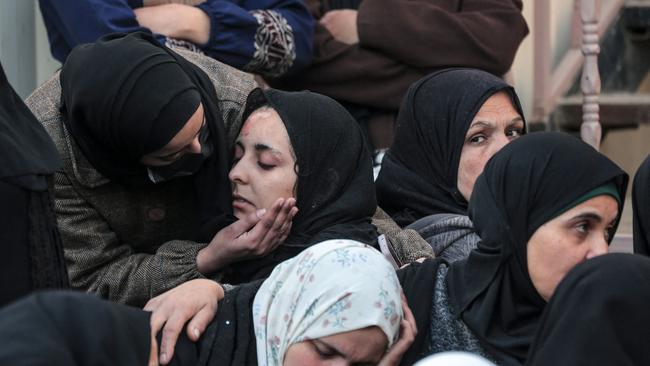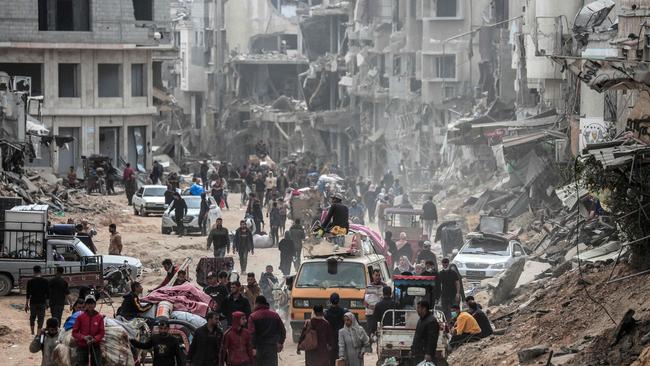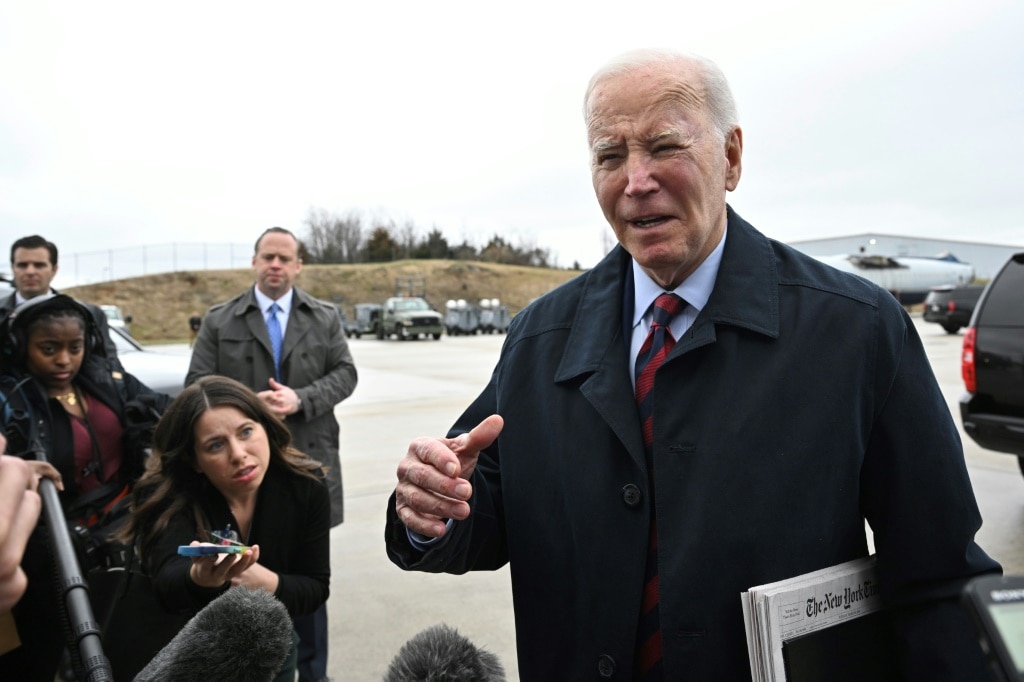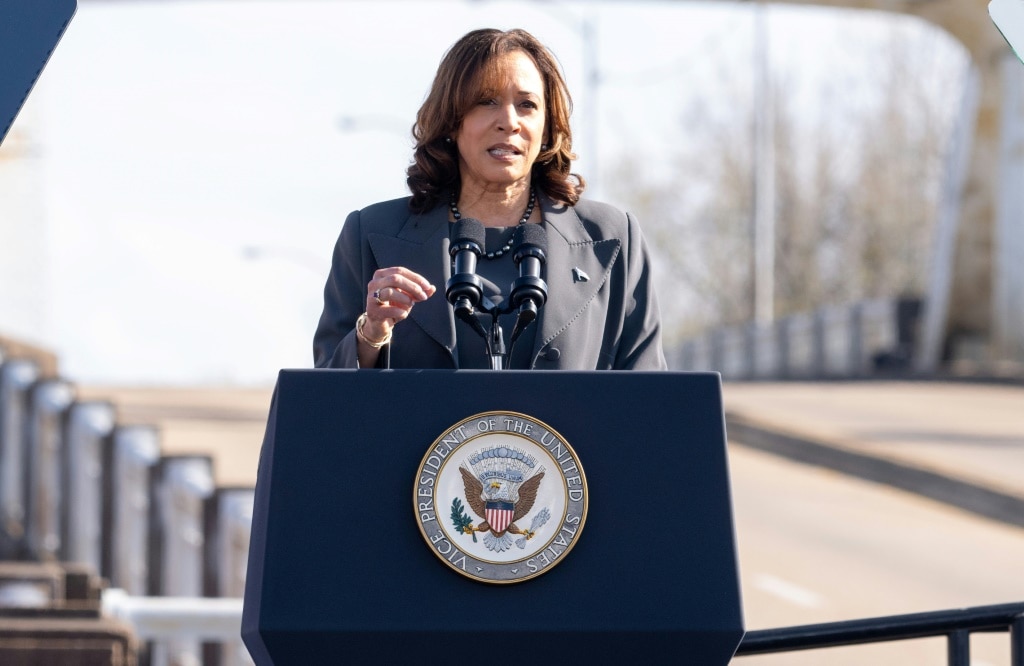Gaza ceasefire talks enter precarious moment
With Ramadan nearing, Israel and Hamas are deadlocked over whether Palestinian men can return to the Gaza Strip’s north.

Ceasefire negotiations in Cairo have entered their most perilous moment in weeks, all but stalling even as US and Arab mediators rush to reach a deal to pause fighting in Gaza and release some hostages held there ahead of a looming Ramadan deadline.
Egypt’s spy chief, Abbas Kamel, stepped in to prevent Hamas from walking away from negotiations on Tuesday, according to Egyptian officials, persuading the militant group to stay an extra day even though the two sides were deadlocked.
Hamas said earlier on Wednesday it had shown “the necessary flexibility” for a deal and would continue to negotiate “to reach an agreement that fulfils the demands and interests of our people”.
Israel and Hamas are at odds over whether fighting-age men will be allowed during a ceasefire to return to the northern part of Gaza, which Israel sealed off as it pursued Hamas’s fighters, Egyptian officials said. An Israeli official denied this was part of negotiations at the moment.

Israel, which isn’t negotiating directly with Hamas in ceasefire talks being mediated by the US, Egypt and Qatar, is still waiting for answers from the militant group, according to the Israeli official. The main questions Israel wants answered are how many and which Palestinian prisoners Hamas wants released for every hostage freed, and how many of the sick, elderly and female hostages it holds are still alive.
Israel, which says the number is around 40, says it won’t send a negotiating team to Cairo until it gets the answers. Hamas says it needs a few days without fighting to tally the figure.
Israeli officials say Hamas’s leader in Gaza, Yahya Sinwar, is not interested in a deal and is instead hoping continued fighting will lead to an escalation of tensions in the West Bank and Jerusalem during Ramadan, which starts on Sunday.

“We received nothing. Nothing has changed. Sinwar wants to promote an escalation in the Middle East and Israel specifically, and promote suffering for his own people,” the official said.
Should the talks collapse, Israel is threatening to move ahead with a military operation in the city of Rafah – where more than a million Palestinians are sheltering – during the Islamic holy month. The US has warned against such a move, which Israel sees as critical to eliminating Hamas from the enclave, without a plan to limit civilian harm. Israeli leaders say they also would not carry out such an operation without first moving civilians out of harm’s way.
The stakes of the precarious negotiations could hardly be higher, with Gazans suffering without steady access to aid, the lives of hostages held in the enclave in the balance, and the death toll from the war climbing.
Gaza’s health authorities say the fighting has left more than 30,000 Palestinians, mostly women and children, dead. Their figures don’t distinguish between civilians and militants.

Politically, too, the implications of a deal, or its failure, are huge. An invasion of Rafah, where, earlier in the war, Israel had told Palestinians to go, could inflame tensions in the region and potentially trigger a larger-scale conflict on Israel’s northern border with Lebanon. Militants from Hezbollah and the Israeli military have exchanged fire over the frontier since Hamas’s October 7 attacks on Israel.
The Biden administration, under electoral pressure over the scale of humanitarian suffering in Gaza, has thrown its weight behind the talks, hoping to secure a six-week pause in fighting to make it easier to inject more humanitarian aid. President Joe Biden said on Tuesday the outcome of the talks was “in the hands of Hamas right now”.
On Wednesday, British Foreign Secretary David Cameron called on Israel to allow in more humanitarian aid, after meeting in London with Benny Gantz, a minister in Israel’s wartime cabinet. “We are still not seeing improvements on the ground,” Mr Cameron said in a statement posted on X that urged an immediate humanitarian pause to the fighting. “This must change.”
The Wall Street Journal





To join the conversation, please log in. Don't have an account? Register
Join the conversation, you are commenting as Logout